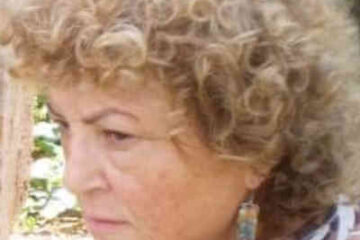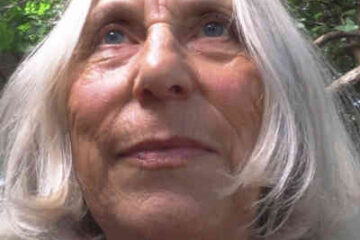Click here to read the PDF version![]()
Her wrinkles disappear as she watches the film, shot on her birthday,
the ninetieth, spent among friends who persevered in
being alive
was her childhood really so happy, was it like the brilliance of stars,
“look”, she says, “everything falls, exactly like then,
we…all…falling”
Am I good enough for her?
suddenly the colors flee, black shot after black shot, “it was exactly
like this”, she says, “but no!” I say, “it’s a damaged copy,
a mistake”
your birthday was full of laughter (keeping tight
the lid over unspeakable memories)
how strange…
strange, I think, why now, in perfect peacetime,
before the first gunshot, that her world
retreats
She stares into the nothing, calm and undisturbed:
“How extraordinary. Where is everything?
where is the fountain and the shop,
the street and the…”

